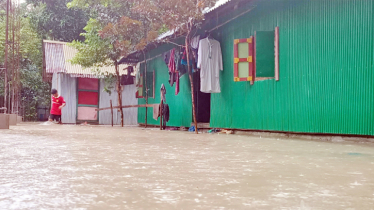
Photo : Collected
A total of 513 students committed suicide across the country in the last year of 2023. This unsettling statistic was revealed by the Aachol Foundation, a non-profit organisation, gives focus on a deeply concerning trend in our society. Among these distressing figures, a significant portion—32.2 percent—of student suicides were attributed to emotional distress.
This revelation serves as a reminder of the profound impact of mental health challenges on our youth. Out of the 513 students who succumbed to suicide, 309 were identified as female, while 204 were male. Despite an overall decrease in the total number of student suicides compared to the previous year, the incidence of female student suicides saw a troubling rise.
Examining the reasons behind these tragic outcomes, the study delineates various factors contributing to the crisis. A significant proportion of female students—28.8 percent—opted for suicide due to emotion, while 16.5 percent cited complications arising from love affairs. Besides, 8.4 percent attributed their actions to mental health imbalances, 7.1 percent to familial discord, and 3.9 percent to experiences of sexual harassment. Academic pressures also played a role, with 4.2 percent of students taking their lives following exam failures.
Of particular concern is the emergence of emotional distress as a leading cause of suicide, defying conventional expectations. Experts suggest that a dearth of supportive environments for student growth and well-being may underpin this alarming trend.
Health professionals further highlight the heightened emotional vulnerability of adolescents, driven by hormonal fluctuations, which may precipitate impulsive decisions such as suicide.
Addressing this complex issue demands a multifaceted approach that transcends mere rhetoric. It necessitates a fundamental reevaluation of our educational paradigms, prioritising life skills and emotional resilience alongside academic achievements. Moral and ideological education must impart a nuanced understanding of life’s inherent value, fostering a sense of purpose and self-worth among students.
Furthermore, collaborative efforts are imperative – spanning over families, educators, healthcare providers, and policymakers. Proactive measures to restrict access to lethal means, such as stringent regulations on the sale of prescription medications and pesticides, are paramount. Early intervention and comprehensive mental health support systems must be readily accessible, with timely referrals to psychiatric care for those in need.
Crucially, fostering strong familial bonds and allocating quality time for meaningful interactions within the family unit can serve as a vital protective factor against suicidal ideation. By collectively embracing these measures, we can endeavour to stem the tide of student suicides and nurture a generation empowered to navigate life’s challenges with resilience and hope.
Messenger/Fameema








